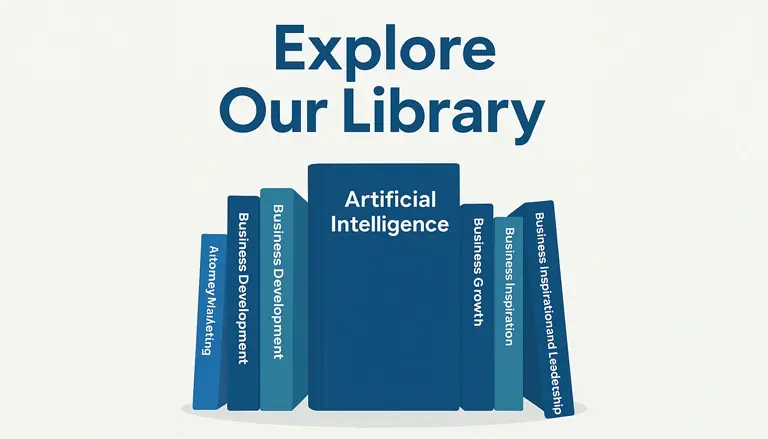

The Ethics of Outsourcing: How to Vet Vendors Without Sacrificing Quality
Posted March 4, 2025 by Kevin Chern
“Ethics is knowing the difference between what you have a right to do and what is right to do.” — Potter Stewart
Outsourcing is no longer just about cost savings it’s about strategic growth, agility, and gaining access to specialized expertise. Yet, as businesses expand their reliance on third-party vendors, a critical question arises: How can companies ensure ethical outsourcing without sacrificing quality?
From data privacy concerns to labor exploitation and environmental responsibility, businesses are under increasing scrutiny to choose vendors that align with their core values. The challenge? Balancing cost-efficiency with ethical accountability while maintaining operational excellence.
Let’s break down the key ethical considerations and best practices to ensure that outsourcing strengthens—not compromises—your business reputation.
The Ethical Landscape of Outsourcing
Ethical outsourcing goes beyond compliance with legal requirements—it’s about integrity, transparency, and sustainability.
Some key ethical concerns in outsourcing include:
✔ Fair Labor Practices – Ensuring that workers are treated ethically, paid fairly, and work under safe conditions.
✔ Data Security & Privacy – Protecting sensitive customer and company data when working with third-party providers.
✔ Environmental Impact – Choosing vendors that follow sustainable and eco-friendly business practices.
✔ Transparency & Compliance – Vendors should be open about their operations, adhere to laws, and uphold business integrity.
A 2023 report by the International Labour Organization (ILO) revealed that over 24.9 million people are subjected to forced labor globally, many working within outsourced supply chains. Businesses that fail to conduct proper due diligence risk unknowingly contributing to unethical labor practices.
Case Study: When Outsourcing Goes Wrong
In 2013, the Rana Plaza collapse in Bangladesh tragically exposed the dark side of unethical outsourcing. Over 1,100 garment workers lost their lives because of unsafe working conditions in factories supplying major global brands. The disaster sent shockwaves through the industry and emphasized the need for businesses to carefully vet their vendors.
What does this mean for companies today? If your vendors operate unethically, your business will be held accountable—whether you were aware of it or not.
How to Vet Vendors Without Compromising Quality
To ensure ethical outsourcing without sacrificing quality, businesses should adopt a rigorous vendor selection and monitoring process. Here’s how:
1. Define Your Ethical Standards First
Before seeking a vendor, outline your company’s ethical non-negotiables:
- Labor Standards: Require adherence to international labor laws (such as ILO conventions).
- Environmental Policies: Assess carbon footprint, waste management, and sustainability efforts.
- Data Security Compliance: Ensure the vendor follows GDPR, HIPAA, or CCPA regulations if handling customer data.
- Supply Chain Transparency: Request insight into subcontracting to avoid unethical third-party involvement.
Pro Tip: Include an “Ethics and Compliance” section in all vendor contracts to set clear expectations from the start.
2. Conduct Thorough Background Checks
A vendor’s reputation can make or break your business. Conduct deep research using:
🔎 Google Search & Reviews – Look for customer complaints, ethical controversies, or regulatory violations.
🔎 Supplier Databases – Use platforms like EcoVadis, Sedex, or B Corp certification directories to find vetted, ethical suppliers.
🔎 Public Filings & Legal Records – Check if the vendor has faced lawsuits related to unethical practices.
🔍 Statistic: According to a Deloitte Global Outsourcing Survey, 65% of businesses regret outsourcing decisions due to inadequate research.
📌 Pro Tip: Conduct social listening by scanning platforms like LinkedIn, Reddit, and Glassdoor for insights on vendor reputation.
3. Assess Certifications & Compliance Standards
Top ethical vendors often hold internationally recognized certifications, such as:
📌 ISO 9001 – Quality Management Systems
📌 SA8000 – Social Accountability & Fair Labor
📌 ISO 27001 – Data Security & Privacy
📌 Fair Trade Certification – Ethical and sustainable sourcing
📌 Pro Tip: Don’t just take their word for it—ask for proof. Request updated copies of their certifications and third-party audit reports.
4. Prioritize Transparency & Site Audits
Nothing beats seeing the operations firsthand. Conduct regular site visits and audits to:
👀 Inspect working conditions – Ensure compliance with labor and safety laws.
👀 Verify subcontracting transparency – Some vendors outsource work to unethical third parties.
👀 Assess quality control measures – Verify that vendor output meets your standards.
🔍 Statistic: A study by Supply Chain Dive found that 75% of companies face hidden risks due to opaque vendor operations.
📌 Pro Tip: Use surprise audits to catch discrepancies between what vendors claim and actual working conditions.
5. Monitor & Enforce Ethical Compliance
Vendor ethics shouldn’t be a one-time concern—it requires ongoing vigilance. Implement:
✔ Regular Ethics Training: Require vendors to educate employees on ethical standards.
✔ Contractual Penalties: Include clauses for terminating contracts if unethical practices are discovered.
✔ Anonymous Reporting Mechanisms: Encourage whistleblowing if workers face exploitation.
📌 Pro Tip: Use AI-driven supply chain tracking tools like SAP Ariba or IBM Watson Supply Chain for real-time visibility into vendor operations.
Why Ethical Outsourcing Benefits Your Business
✔ Stronger Brand Reputation – Consumers prefer companies with ethical supply chains. A Nielsen study found that 66% of global consumers are willing to pay more for sustainable brands.
✔ Risk Mitigation – Avoid costly PR disasters, lawsuits, and supply chain disruptions.
✔ Higher Quality Products & Services – Ethical vendors invest in employee well-being, leading to better work quality.
Final Thoughts: Make Ethics a Competitive Advantage
Choosing the right outsourcing partner is like building a house—you wouldn’t construct it on shaky foundations. Likewise, outsourcing to vendors with questionable ethics is a ticking time bomb for your brand.By prioritizing due diligence, transparency, and continuous monitoring, your business can outsource ethically while maintaining top-tier quality.
Tags:




